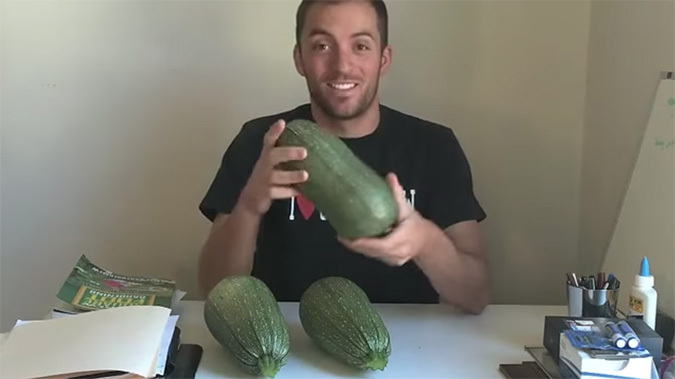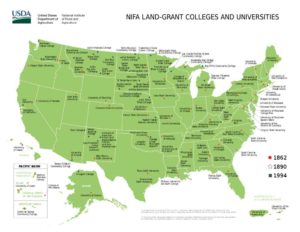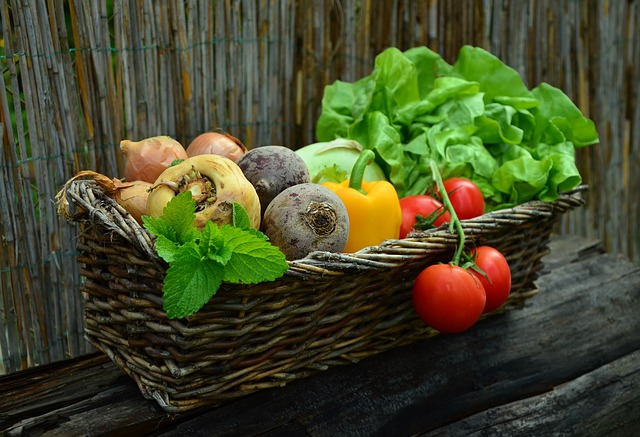I arrived in Utah in July 2011, smack-dab in the middle of the dog days. Temps were in the 100’s, and the dry, dusty air was punishing to my wimpy San Diego DNA.
I rented an old house in the small town of Springville—where, for the first time in our marriage, my wife and I had an actual yard. Prior to that, we had been living in a downtown 2-room apartment, so our half acre in Springville might as well have been 100.
Though it was everlastingly late in the season and the temperatures were oppressive, I was bound and determined to grow some kind of a garden. After all, I couldn’t let my new “homestead” go to waste!
My Local Extension Office to the Rescue
The only problem was that I simply didn’t know the first thing about gardening . . . especially in Utah . . . in July. So I did what anybody in my position would do—furiously started Googling. After a handful of haphazard plunges into the World Wide Web, I stumbled across a result from the Extension Office of Utah’s land grant university.
I had never heard of land grant universities, and didn’t have the first clue about what they were. After a little more clicking around, however, I realized just what a great resource they could be. It turned out that my state’s land grant university (Utah State University) had an Extension Office in Provo, Utah—not far from my house. There, I could bring soil and pest samples, talk to master gardeners, and get information about growing conditions specific to my area.
BOOM—gold mine!
I also learned that, even without going into the office, you could call and talk to master gardeners about your farm and garden efforts. I did this and, in just a few minutes, I got all kinds of recommendations for my last-chance, “Hail Mary” garden: the best local soil amendments, where to get the cheapest supplies, the ideal times to water, the nurseries with the best plant stock, and more.
To make a long story short, that phone call gave me the “crash course” I needed to get going. I officially got my first garden in the ground on July 29, 2011. And yes, before the frost came just a couple of short months later, I had my first harvest (to be fair, it was mostly zucchini and summer squash).

After getting some encouragement from my Extension Office master gardener, I planted my first garden in late July 2011. Here’s some of my harvest.
After getting some encouragement from my Extension Office master gardener, I planted my first garden in late July 2011. Here’s some of my harvest.
In the time since, my love for home-scale food production has only grown. I’ve planted and harvested several gardens, plus trees, berries, and herbs. I’ve even become a Certified Permaculture Designer, but I still look back on that moment with the Extension Office as the “face that launched 1,000 ships.” Without an early taste of success, it’s difficult to say whether I would have taken as much interest in growing things.
What Is a Land Grant University (and What Happens at Extension Offices)?
Put simply, land grant universities are universities that receive special privileges and funding in order to further the practices of agriculture. Historically, these provisions were laid out in the Morrill Acts of 1862 and 1890 as a practical initiative to balance out a rising tide of a more classical, liberal arts–based education.

There are 106 total land grant universities, with at least one in each of the 50 states and in 6 territories.
Land grant universities exist in all 50 states, and are available as resources to the public. Each land grant university has several Extension Offices, which are typically located in each county so that they are accessible no matter where you live.
6 Ways Your Extension Office Can Help
Although they were originally created with the commercial farmer in mind, they offer a multitude of benefits to the homesteader or home-scale gardener.
Here are just a few things that your Extension Office can help you with:
- Free classes. It’s not uncommon for Extension Offices to offer free classes on gardening or food preservation. These classes are a great way to expand your knowledge and meet like-minded folks who can share their experiences with you. Check with your Extension Office to see what is offered.
- Soil testing and analysis. Many Extension Offices will offer a soil analysis for a small fee (or in some cases for free). Figure out exactly what you need to optimize your specific piece of dirt for high-yield production.
- Pest identification. Although Google searches will get you far in today’s day and age, there is still no replacement for local knowledge and experience. Tap into an expansive repository of information about the pests and diseases that affect your area.
- Phone calls with master gardeners. As I shared from my own experience, being able to talk to a master gardener 1-on-1 is a big time-saver and confidence-booster. If you have questions about plant varietals, timelines, or anything else that is specific to your area, this alone is priceless.
- Rolodex of free and low-cost materials. Another way that my Extension Office really helped me out in the early days was by tipping me off to the best free and low-cost gardening materials around town (specifically compost and mulch). Because they are a bit of a food production epicenter, they usually know if there is a great deal or giveaway happening somewhere in the area.
- Group buys. While not every extension office offers this, a couple of the offices in Utah organize group buys for bare root trees and perennial shrubs every year. This is a great way to take advantage of the economies of scale, and usually score some “tried and tested” plant varieties for your area.
A Word of Caution to the Organic Grower
As with any subsection of the farming and food-production world, there are different ideas about the best way to do things. In particular, people tend to vary widely on their opinions regarding whether or not to use chemical fertilizers and pesticides.
Without getting too derailed or off-topic, suffice it to say that if you are trying to keep your food and medicine production strictly organic, you should be discerning in what advice you take.
Although your local Extension Office truly is an enormous resource and is full of great people, you should remember that everybody comes from a different paradigm. Be respectful of the folks trying to help you out, and tailor their suggestions if you need to.
Ready, Set . . . Land Grant!
When it comes to producing your own food and medicine, there’s no magic bullet or instant hack that can take you from zero to ninja. Rather, as we all know, it’s an ongoing process that involves lots of trial and error.
However, there are some great tools that can assist us along the way.
Land grant universities are just one of these tools—and one that a surprising number of home-scale growers have never tapped into. They are accessible to the public and offer some really helpful resources at no cost.
Although the growing season is quickly coming to a close, many land grant university Extensions remain open through the off-season. It’s a perfect time to get advice and make plans for next year. Plus, some offices offer timely classes on food preservation and best practices for “wintering” your garden. Contact your Extension Office, and see what they offer!
What Do You Think?
What’s the best piece of advice you’ve ever gotten from your local Extension Office? Let us know in the comments!

Since 2010, Dan Carpenter has been helping people live self-sufficiently. He has traveled extensively to study self-sufficiency in many different contexts (including a year spent living in Panama). Dan is the founder and principal of Homestead Launch, a real estate company that helps clients plan, purchase, and establish their own modern homesteads. When he’s not pounding self-sufficiency, you can find him eating some barbecue, reading a good book, or watching a baseball game.








COMMENTS(6)
I have used our local county extension office since we moved to the state. They are such an invaluable source of information. Ours also rents quite a bit of equipment out as well. Thanks for sharing.
That’s fantastic, another great service that some of them offer! Thanks for taking the time to read and reply! – Dan
Thanks for making people aware of this great resource Dan!
I’ll add to your list by saying I’ve found lots of free gardening publications available on my state extension website that have been so helpful. And if you’re interested in becoming a Master Gardener, the extension office can tell you how, and you can be the one answering the phones and helping people, it’s quite fun!
Very true! Some extension offices offer other classes in canning, dehydrating, and other food preservation as well.
Great information, thank you!
No problem Edgar–glad you enjoyed it! 🙂